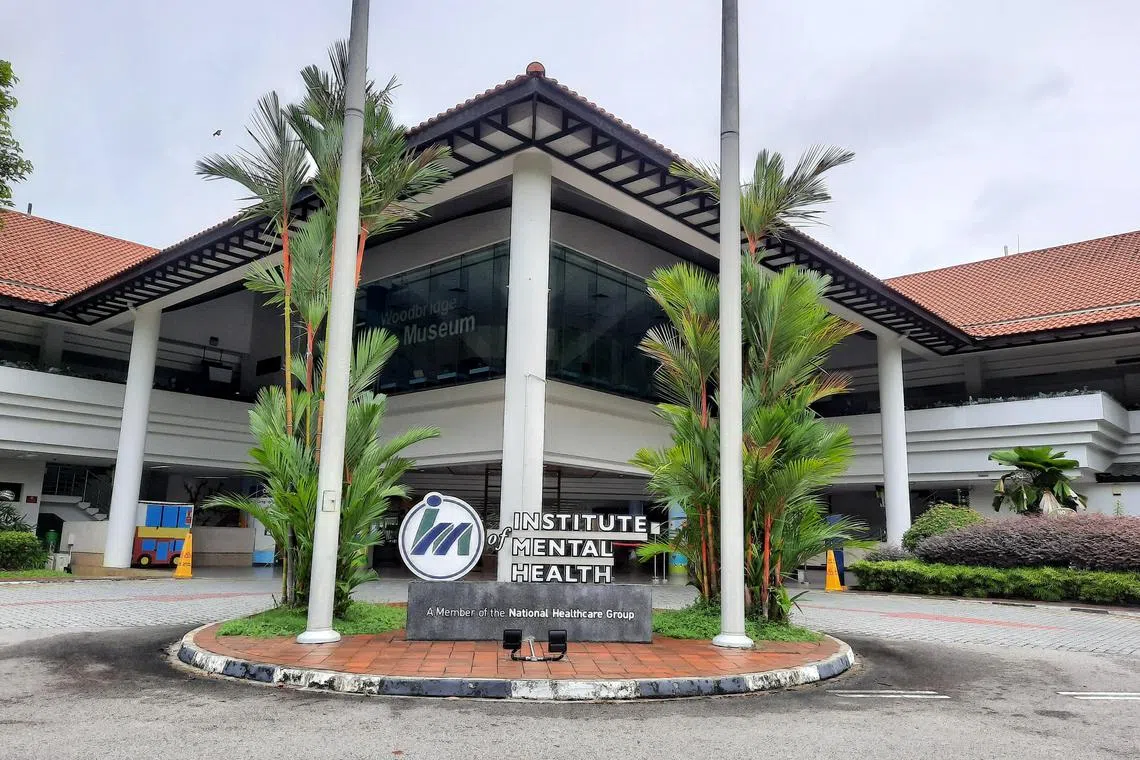IMH doctor not required to tell family she was giving drug that likely led to patient’s death: Coroner
Sign up now: Get ST's newsletters delivered to your inbox

The patient's death was ruled as a medical misadventure.
PHOTO: LIANHE ZAOBAO
SINGAPORE – After he was administered a mood stabiliser while in the Institute of Mental Health (IMH), Mr Shawn Ho Chet Hsiong, who has intellectual disability and autism spectrum disorder, died from multiple organ failure.
Following his death on June 23, 2020, Mr Ho’s brother asked why his family was not notified before the drug – carbamazepine – was given.
But in a report dated Jan 11, 2023, State Coroner Adam Nakhoda said there was no legal requirement for this.
The coroner, who ruled the death as a medical misadventure, said that as Mr Ho, 27, did not have the mental capacity to consent to receiving carbamazepine, it was for the treating clinician to decide on the appropriate treatment.
The coroner determined that starting him on the drug was appropriate.
While it is good clinical practice for the attending doctor to update a patient’s family on the prescription of a new medication where feasible, the coroner found that it was reasonable that the associate consultant psychiatrist managing Mr Ho had not done so.
Apart from it not being a legal mandate, State Coroner Nakhoda accepted that there were insufficient resources available to keep the family updated, especially with the reduced manpower as a result of Covid-19 restrictions.
Mr Ho, who had limited verbal communication skills, needed help with daily living activities and was prone to self-injurious and aggressive behaviour, was admitted to IMH on April 20, 2020.
This was after his aggressive behaviour – particularly towards his mother – worsened when activities at his day activity centre stopped during the Covid-19 circuit breaker.
Mr Ho was placed in a ward which, according to his psychiatrist, was one of IMH’s busiest, with most of its patients having aggression or suicidal issues.
The psychiatrist said that even in normal times, there were simply insufficient resources to inform every family about changes in a patient’s medication, let alone during the Covid-19 pandemic, which had halved the ward’s manpower.
Mr Ho’s aggressive behaviour did not improve after he was admitted, and on one occasion, he hit another patient.
Noting that Mr Ho had previously responded well to mood stabilisers, the psychiatrist started him on carbamazepine, which State Coroner Nakhoda said was “appropriate and necessary as it was the therapy of last resort”.
Among the alternatives considered, lithium was deemed unsuitable because preventing the level of lithium from becoming toxic required Mr Ho to closely monitor his water and salt intake.
The doctor was not confident that Mr Ho would do so sufficiently after he was discharged.
Said the coroner: “In view of the treatment goals, which were to address and reduce Shawn’s aggression and self-injurious behaviour, allow him to be discharged back to his family and re-enrolled at the day activity centre, I accepted that initiating carbamazepine was the only viable option for him.”
He added that failing to address the aggression and behaviour meant Mr Ho would have to remain in IMH and be placed in restraints for a long time, which would have led to other serious issues like pneumonia and urinary tract infection.
Mr Ho’s psychiatrist said she would have told the family if IMH was proceeding with a high-risk intervention or if they had made it clear that they wanted to be updated before any new medications were started.
Otherwise, she would normally provide a summary to the family near the discharge time.
Before carbamazepine was used, reasonable and necessary precautions were taken, including a test for HLA-B allele, a gene variant, said State Coroner Nakhoda.
As Mr Ho was negative for the allele, his risk of developing a rare skin disorder or toxic epidermal necrosis – severe skin reactions most often triggered by particular medications – was 0.007 per cent.
“This was a very low risk. Unfortunately, a very low risk does not mean that there was no risk,” said the coroner.
After developing a fever on June 5, 2020, Mr Ho was transferred to Changi General Hospital and he was found to have redness on his spinal area the next day.
He developed a rash that spread rapidly and was transferred to Singapore General Hospital, where he eventually died.
Ruling out foul play, State Coroner Nakhoda said the cause of death was certified as multiple organ failure due to toxic epidermal necrolysis and that the most likely culprit was the carbamazepine.
“Having stated my findings, I wish to extend my sincere condolences to Shawn’s family on their loss,” he added.



